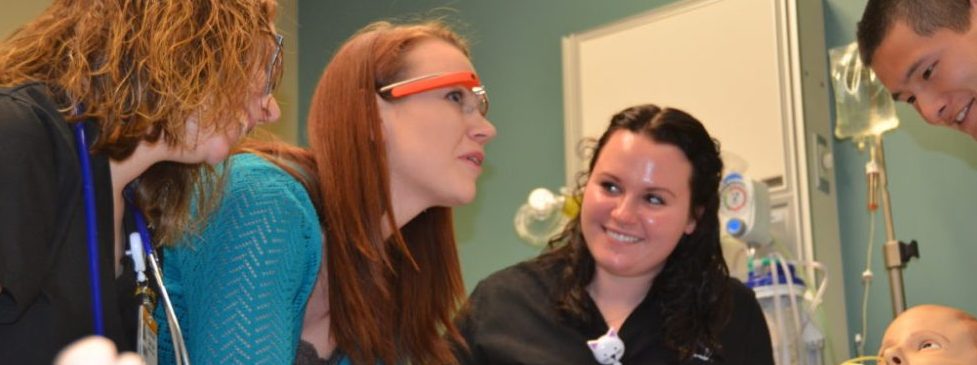A Doctorate in Nursing Practice (DNP) from Mizzou can help you advance your career as a nurse leader, educator or advanced practice professional. Our program is distance mediated, providing online coursework with minimal on-campus visits (generally once per year), ideal for the working professional. Students may select from part-time or full-time plans of study to meet individual student needs.
Program Overview
- You will complete most course work online with some classes having regular or occasional synchronous chats. There are on-campus events four times throughout the program.
- Integrate advanced knowledge of nursing theories, methods of inquiry, humanities and related sciences in the delivery of care to rural and other underserved populations.
- Serve as leaders, in collaboration with multiple disciplines to improve the quality of health care outcomes for individuals, populations and systems.
- Systematically evaluate a defined area of nursing using technologies in order to advance cost-effective health care delivery.
- Appraise scientific data from various domains in order to translate the best evidence into nursing practice and health care delivery.
- Analyze the social, economic, cultural, environmental, political and policy components of health care to advocate for improved health outcomes and reduce health disparities.
- Courses are semester-based. How long it takes to complete the program depends on your academic progress so far. If you already have a master’s degree, you can study part time and complete the program in three years. If you have a bachelor’s degree and want to study part time, the program is more likely to take you five or six years.

Student Program Outcomes
- Synthesize knowledge from nursing and multiple disciplines to inform clinical judgement and advance the delivery of systematic, comprehensive care (Domain 1).
- Direct compassionate person-centered care through leadership, innovation, collaboration, and system level change (Domain 2).
- Design healthcare delivery systems and policies with collaborative partners to address social determinants of health and advance equitable population health (Domain 3).
- Translate research into evidence-based practice using ethical principles to impact health outcomes (Domain 4).
- Design system-based quality improvement and safety initiatives across health care environments (Domain 5).
- Lead interprofessional health care teams that foster communication and collaboration integrating diverse perspectives to optimize care delivery (Domain 6).
- Recommend systems-based practice to improve safe, quality, cost-effective, and equitable care (Domain 7).
- Synthesize data from information and communication technologies to improve care within health systems (Domain 8).
- Advance nursing professionalism through accountability, integrity, and advocacy within and across systems (Domain 9).
- Transform health and well-being, professional maturity, and leadership capacity in self, others, and systems (Domain 10).
(Approved by Sinclair School of Nursing Faculty Assembly, May 9, 2025)

